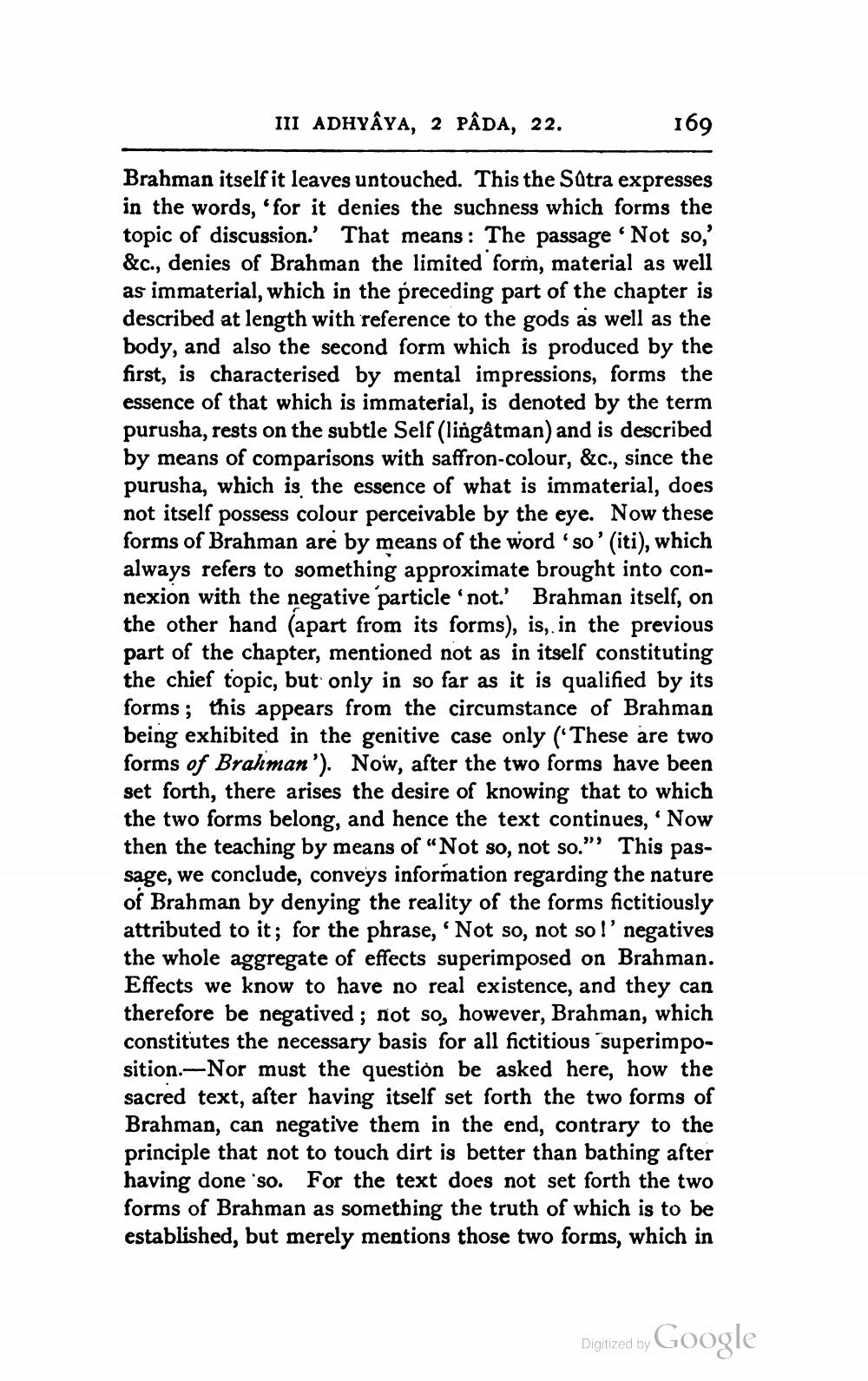________________
INI ADHYAYA, 2 PÂDA, 22.
169
Brahman itself it leaves untouched. This the Satra expresses in the words, 'for it denies the suchness which forms the topic of discussion.' That means : The passage Not so,' &c., denies of Brahman the limited form, material as well as immaterial, which in the preceding part of the chapter is described at length with reference to the gods as well as the body, and also the second form which is produced by the first, is characterised by mental impressions, forms the essence of that which is immaterial, is denoted by the term purusha, rests on the subtle Self (lingâtman) and is described by means of comparisons with saffron-colour, &c., since the purusha, which is the essence of what is immaterial, does not itself possess colour perceivable by the eye. Now these forms of Brahman are by means of the word so'iti), which always refers to something approximate brought into connexion with the negative particle ‘not.' Brahman itself, on the other hand (apart from its forms), is, in the previous part of the chapter, mentioned not as in itself constituting the chief topic, but only in so far as it is qualified by its forms; this appears from the circumstance of Brahman being exhibited in the genitive case only ("These are two forms of Brahman'). Now, after the two forms have been set forth, there arises the desire of knowing that to which the two forms belong, and hence the text continues, ' Now then the teaching by means of "Not so, not so." This passage, we conclude, conveys information regarding the nature of Brahman by denying the reality of the forms fictitiously attributed to it; for the phrase, “Not so, not so l' negatives the whole aggregate of effects superimposed on Brahman. Effects we know to have no real existence, and they can therefore be negatived; not so, however, Brahman, which constitutes the necessary basis for all fictitious 'superimposition.-Nor must the question be asked here, how the sacred text, after having itself set forth the two forms of Brahman, can negative them in the end, contrary to the principle that not to touch dirt is better than bathing after having done 'so. For the text does not set forth the two forms of Brahman as something the truth of which is to be established, but merely mentions those two forms, which in
Digitized by
Digized by Google




